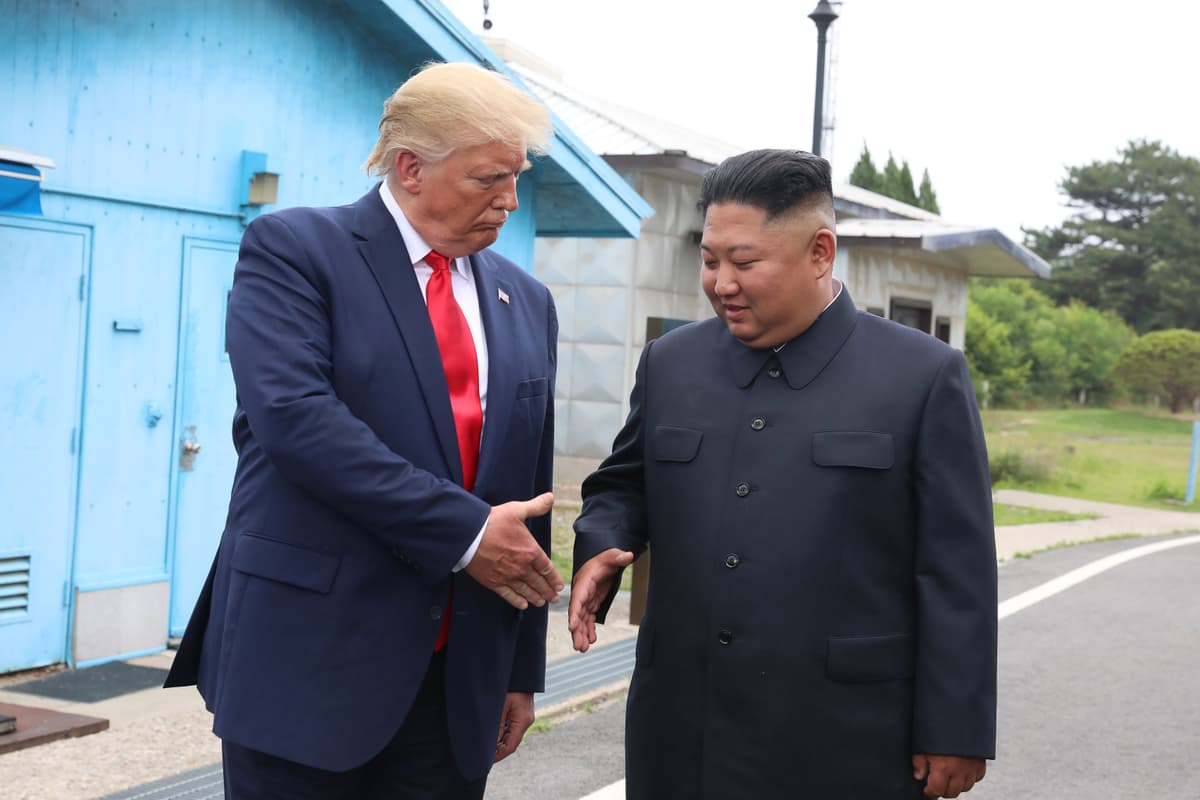Harris, in Demarche in South Korean Press, Aims To Put Trump on the Spot Over His ‘Love’ of North Korea’s Kim Jong-un
The Democratic nominee is appealing for the votes of more than 2 million Korean-Americans.

Vice President Harris, aiming to put President Trump on the spot for his “love” of North Korea leader Kim Jong-un, is carrying her campaign for president to South Korea. She is appealing for the votes of more than 2 million Korean-Americans.
Ms. Harris reaffirmed her faith in the American-Korean- alliance without mentioning Trump’s personal fondness for Mr. Kim. That has often been expressed by Trump since the two met at their summit in Singapore in June 2018, again at Hanoi in February 2019, and four months later at the truce village of Panmunjom on the line between the two Koreas.
A login link has been sent to
Enter your email to read this article.
Get 2 free articles when you subscribe.

